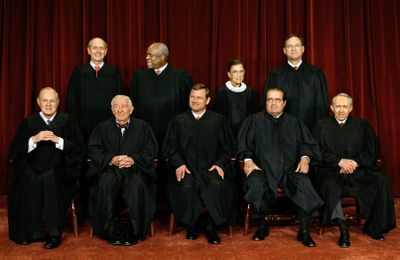Defense can question experts
Court lets defendants face crime lab techs

WASHINGTON – The Supreme Court announced Thursday a potentially significant change in how crime lab reports are used in trials, ruling that a defendant has the right to cross-examine in front of the jury the experts who prepared these reports.
Crime labs have been subjected to much criticism in the past decade, much of it because of DNA evidence that has shown at least 240 prisoners were innocent. In many instances, they were convicted based on faulty tests involving hair samples, clothing fibers, blood or ballistics from guns.
Often, the crime lab reports were simply introduced as evidence. They were assumed to be accurate.
In Thursday’s opinion, Justice Antonin Scalia said technicians who prepared these reports are like “witnesses” for the prosecution. And under the Sixth Amendment, the accused has the right “to be confronted with the witnesses against him.”
Scalia spoke for a 5-4 majority that reversed the conviction of a Massachusetts man who was convicted of selling cocaine. Police officers took 19 small bags from a car in which Luis Melendez-Diaz was riding.
At his trial, the prosecution submitted a certificate from a state lab saying the bags contained cocaine. Melendez-Diaz objected, and his lawyer said he wanted to challenge this evidence. But the objection was overruled, and the defendant was found guilty.
In Melendez-Diaz v. Massachusetts, the Supreme Court reversed his conviction on the grounds his rights to confront his accuser was violated.
Stanford law professor Jeffrey Fisher, who represented the defendant, said the ruling has national significance. “It means the prosecution must be ready to present forensic evidence through live testimony if the defendant requests it,” he said.
The court alignment was unusual. Justice John Paul Stevens, Justice David H. Souter, Justice Clarence Thomas and Justice Ruth Bader Ginsburg joined Scalia.
The dissenters, led by Justice Anthony M. Kennedy, said the ruling “has vast potential to disrupt criminal procedures that already give ample protections against the misuse of scientific evidence.”
Kennedy said the ruling could mean that others who gathered or prepared lab samples might be called to testify. And he worried that cases could be thrown out if these experts were unavailable, even if they had died in the interim.